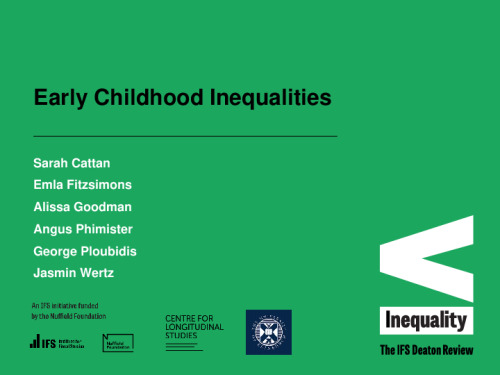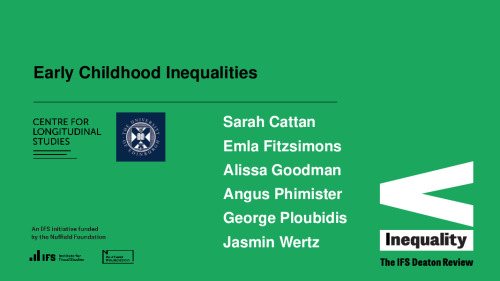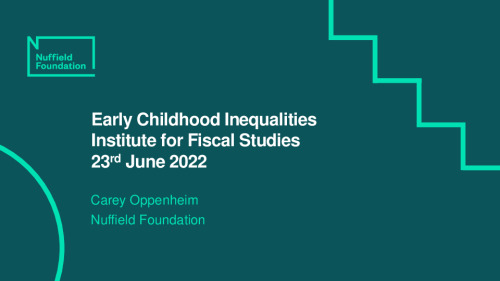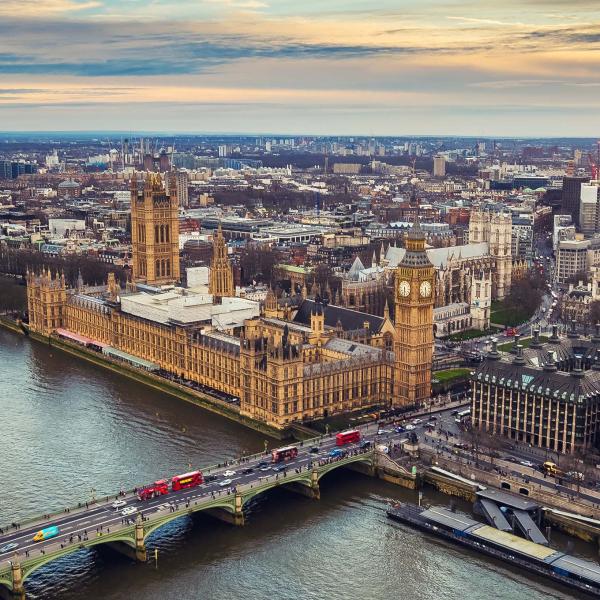
The environment that children are raised in, and their development of cognitive, and social and emotional skills affect the subsequent trajectory of their lives. Inequalities between children in these domains open up very early in life.
Downloads

Sarah Cattan's Presentation
PDF | 135.55 KB

Alissa Goodman's Presentation
PDF | 970.01 KB

Carey Oppenheim's Presentation
PDF | 531.65 KB
The environment that children are raised in, and their development of cognitive, and social and emotional skills affect the subsequent trajectory of their lives. Inequalities between children in these domains open up very early in life.
At this online event we discussed a number of questions. How large is the variation in early child development and in the environments that young children are raised in? What are the most important features of children’s early environment for their development? What do the latest data tell us about what is happening to inequalities in the development of these inequalities, and why? What is the role of family and early years policy to tackle early childhood inequalities?
This event was chaired by Paul Johnson, IFS Director, and featured talks from:
- Sarah Cattan, IFS
- Alissa Goodman, UCL
- Carey Oppenheim, Nuffield Foundation
Authors

Research Fellow University College London
Alissa is an IFS Research Fellow and a Professor of Economics and Director of the Centre for Longitudinal Studies at the UCL Institute of Education.


Carey Oppenheim
Presentation details
- Publisher
- Institute for Fiscal Studies
Suggested citation
S, Cattan and A, Goodman and C, Oppenheim. (2022). 'Early childhood inequalities' [Presentation]. London: Institute for Fiscal Studies. Available at: https://ifs.org.uk/publications/early-childhood-inequalities (accessed: 30 June 2024).
More from IFS
Understand this issue

Election Special: Is there a 'conspiracy of silence' between both parties?
6 June 2024

What does the Conservative's higher education announcement this week mean for apprenticeships and 'low-value' university courses?
1 June 2024

What is the two-child limit in benefits?
27 June 2024
Policy analysis

How do the last five years measure up on levelling up?
19 June 2024

Free breakfast clubs in schools: what Labour’s plans would mean for pupils and families
25 June 2024

How should we interpret parties’ public spending pledges this election?
23 June 2024
Academic research

Income inequality in Ireland, 1987–2019
28 June 2024

Components of the evolution of income inequality in Sweden, 1990–2021
28 June 2024
